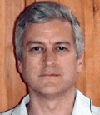Constitution Ballroom A
Andy Rudoff, Intel, and Tom Talpey, Microsoft
Persistent Memory (“PM”) support is becoming ubiquitous in today’s operating systems and computing platforms. From Windows to Linux to open source, and from NVDIMM, PCI Express, storage-attached and network-attached interconnect access, it is available broadly across the industry. Its byte-addressability and ultra-low latency, combined with its durability, promise a revolution in storage and applications as they evolve to take advantage of these new platform capabilities.
The tutorial explores the concepts and today’s programming methodologies for PM, including the SNIA NonVolatile Memory Programming Model architecture, open source and native APIs, operating system support for PM such as direct access filesystems, and via language and compiler approaches. The software PM landscape is already rich and growing.
Additionally, the tutorial will explore the considerations when PM access is extended across fabrics such as networks, I/O interconnects, and other non-local access. While the programming paradigms remain common, the implications on latency, protocols, and especially error recovery are critically important to both performance and correctness. Understanding these requirements are of interest to both the system and application developer or designer.
Specific programming examples, fully functional on today’s systems, will be shown and analyzed. Concepts for moving new applications and storage paradigms to PM will be motivated and explored. Application developers, system software developers, and network system designers will all benefit. Anyone interested in an in-depth introduction to PM in emerging software and hardware systems can also expect an illuminating and thought-provoking experience.
Topics include:
- Persistent Memory
- Persistent Memory Technologies
- Remote Persistent Memory
- Programming Interfaces
- Operating Systems
- Open Source Libraries
- RDMA
Andy Rudoff, Intel

Andy Rudoff is a Principal Engineer at Intel Corporation, focusing on Non-Volatile Memory programming. He is a contributor to the SNIA NVM Programming Technical Work Group. His more than 30 years industry experience includes design and development work in operating systems, file systems, networking, and fault management at companies large and small, including Sun Microsystems and VMware. Andy has taught various Operating Systems classes over the years and is a co-author of the popular UNIX Network Programming text book.
Tom Talpey, Microsoft

Tom Talpey is an Architect in the Networking team at Microsoft Corporation in the Windows Devices Group. His current areas of focus include RDMA networking, remote filesharing, and persistent memory. He is especially active in bringing all three together into a new ultra-low-latency remote storage solution, merging the groundbreaking advancements in network and storage-class memory latency. He has over 30 years of industry experience in operating systems, network stacks, network filesystems, RDMA and storage, and is a longtime presenter and instructor at diverse industry events.
Open Access Media
USENIX is committed to Open Access to the research presented at our events. Papers and proceedings are freely available to everyone once the event begins. Any video, audio, and/or slides that are posted after the event are also free and open to everyone. Support USENIX and our commitment to Open Access.
